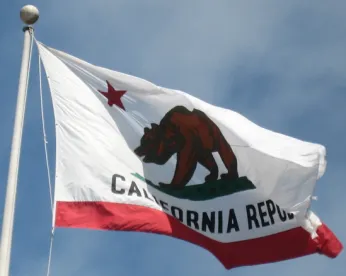Effective February 1, 2021, the California Legislature and Governor Gavin Newsom approved Senate Bill (“SB”) 91 – Eviction Protection and Relief Act in further response to the ongoing COVID-19 pandemic. In essence, SB 91 extends core tenant protections established by August 2020’s Assembly Bill (“AB”) 3088,[1] but also establishes the State Rental Assistance Program, provides rental assistance for landlords and tenants, and closes existing loopholes in AB 3088.
Extension of Prior Legislation
Two days prior to the expiration of AB 3088, the enactment of SB 91 extended AB 3088’s residential tenant eviction moratorium until June 30, 2021, and pushed back local governments ability to adopt local rules related to nonpayment of rent to August 1, 2021. SB 91 extends the expansion of AB 1482’s “just cause” requirement, requiring all landlords to have just cause to evict[2] until June 30, 2021.
Similar to AB 3088, SB 91 requires tenants to pay 25% of monthly rent in order to benefit from the moratorium’s protections. This amount can be paid monthly or in a lump sum prior to July 1, 2021. Additionally, tenants are required to respond to a notice to pay rent with the declaration identified in AB 3088 within 15 days.
Further, on or before February 28, 2021, landlords must provide a notice to tenants who have not, as of February 1, 2021, paid one or more rental payments since September 1, 2020, outlining tenant’s rights under SB 91[3] (including information about the State Rental Assistance Program).
Rental Assistance
SB 91 establishes the State Rental Assistance Program to allocate the $2.61 billion in federal rental assistance California will receive. Under the program, funds will be allocated based on federal eligibility standards, with households and communities disproportionately impacted by COVID-19 taking priority, meaning a tenant who earned less than 80% of the area median income in 2020. The program is also intended to prioritize tenants with documented financial hardships and/or demonstrated risk of homelessness or housing instability. Local jurisdictions with populations below 200,000 will receive approximately $150 million directly from the federal government, and the remaining funds will be available for local jurisdictions with populations greater than 200,000, but can choose to administer a portion of funding available from the state as a block grant. The initial allocation of funds will occur no later than February 19, 2021.
A landlord is permitted to choose to participate in the program at its own discretion (unit by unit). If a landlord agrees to participate in the program, the landlord will be paid up to 80% of rental debt accumulated between April 1, 2020 and March 31, 2021. This includes rent, fees, interest, or any other financial obligation under a lease. A landlord’s acceptance of the money will be conditioned upon the landlord’s agreement to accept the payment in full of the rental debt owed by any tenant, forgiving the remaining 20% debt and releasing any and all claims for nonpayment of rental debt owed for the specific time period, including a claim for unlawful detainer. For the months following March 2021, if funds are available, the program will pay 25% of future rent for a period up to 3 months. Assistance will be paid to landlords directly. If a landlord refuses to participate in the rental assistance program, tenants may still apply for rental assistance but will not receive more than 25% of unpaid rent accrued from April 1, 2020 through March 31, 2021.
SB 91 permits the Department of Housing and Community Development to implement an application portal to manage applications and direct payments for the State Rental Assistance Program. Both the landlord or tenant will be permitted to initiate an application and both parties will be made aware of the opportunity to participate. The State Rental Assistance Program will begin accepting applications from landlords and tenants no later than March 15, 2021.
Additional Regulations
In addition to the State Rental Assistance Program, SB 91 adds the following regulations to the protections provided by AB 3088:
-
No late fees can be charged for late payment of rent.
-
Landlords cannot apply a security deposit to satisfy COVID-19 rent debt, unless the tenant has agreed, in writing, to allow the deposit to be so applied.
-
Landlords cannot apply a monthly rental payment to any COVID-19 rental debt other than the prospective month’s rent, unless the tenant has agreed, in writing.
-
Landlords who temporarily reduce or make unavailable a service or amenity as a result of compliance with federal, state or local public health orders shall not be considered to violate the lease agreement.
-
Prevents a landlord from selling or assigning unpaid COVID-19 rental debt, for the time period between March 1, 2020 and June 30, 2021.
-
Prohibits consideration of COVID-19 rental debt as a negative factor for prospective tenants.
Clarifications
SB 91 also closes certain loopholes and inconsistences identified in prior legislation related to how debt can be collected via courts, by:
-
Capping attorney fees for debt collection cases.
-
Prohibiting small claims filings for recovery of COVID-19 rental debt accrued from March 2020 through June 2021, until August 1, 2021 and other court filings until July 1, 2021.[4]
-
Grants courts the authority to reduce the damages awarded if a landlord refused help from the State Rental Assistance Program for a tenant.
-
Permanently prevents sale of COVID-19 debt if tenant would have qualified for federal/state relief funds.
As you are aware, things are changing quickly and the aid measures and interpretations described here may change and are subject to wide interpretations. This article represents our best understanding and interpretation based on where things currently stand and is not intended to address all potential legal risks or to be a definitive statement of law.
FOOTNOTES
[1] See prior article on AB 3088 here.
[2] See prior article on AB 1482 here.
[3] Form of notice provided by the State.
[4] If a local government opts out of the State Rental Assistance Program, this restriction may be waived.



 />i
/>i

